The best Witcher 3 characters
These are the characters who make The Witcher 3 one of the best RPGs of all time.
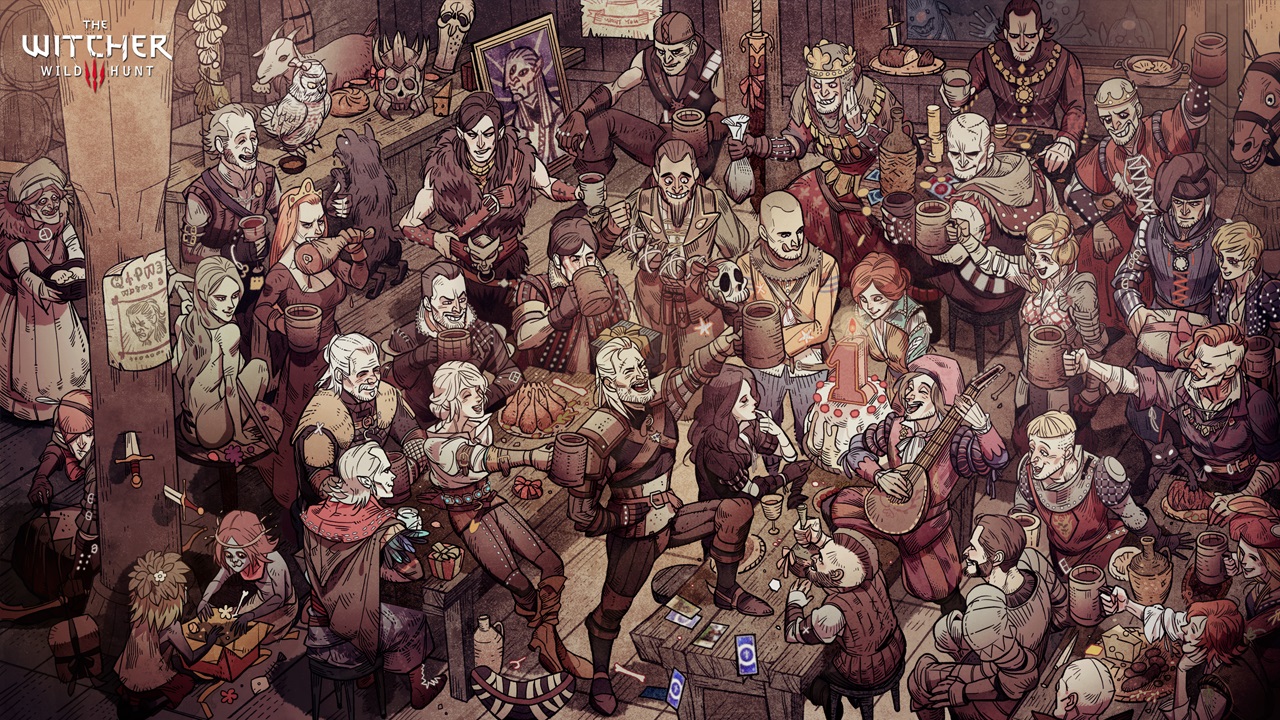
There might be too many good characters in The Witcher 3.
When we decided to write about our favorites, we compiled a list that ballooned to more than 40 allies and villains and minor NPCs. We love them all, but there can only be so many characters worthy of being ranked among the best. After assembling the long list of most lovable (and hateable) characters, our Witcher 3 experts voted and fought for this lineup of the greatest characters in CD Projekt Red's greatest RPG.
It was a hard road. Before we get to the goods, let me just break your heart now: Bart the rock troll, the most clever conversationalist in Novigrad, did not make the cut. These are the kinds of sacrifices we had to make.
Note: Story spoilers abound for The Witcher 3 and its expansions, so avert your eyes now if you haven't completed the game.
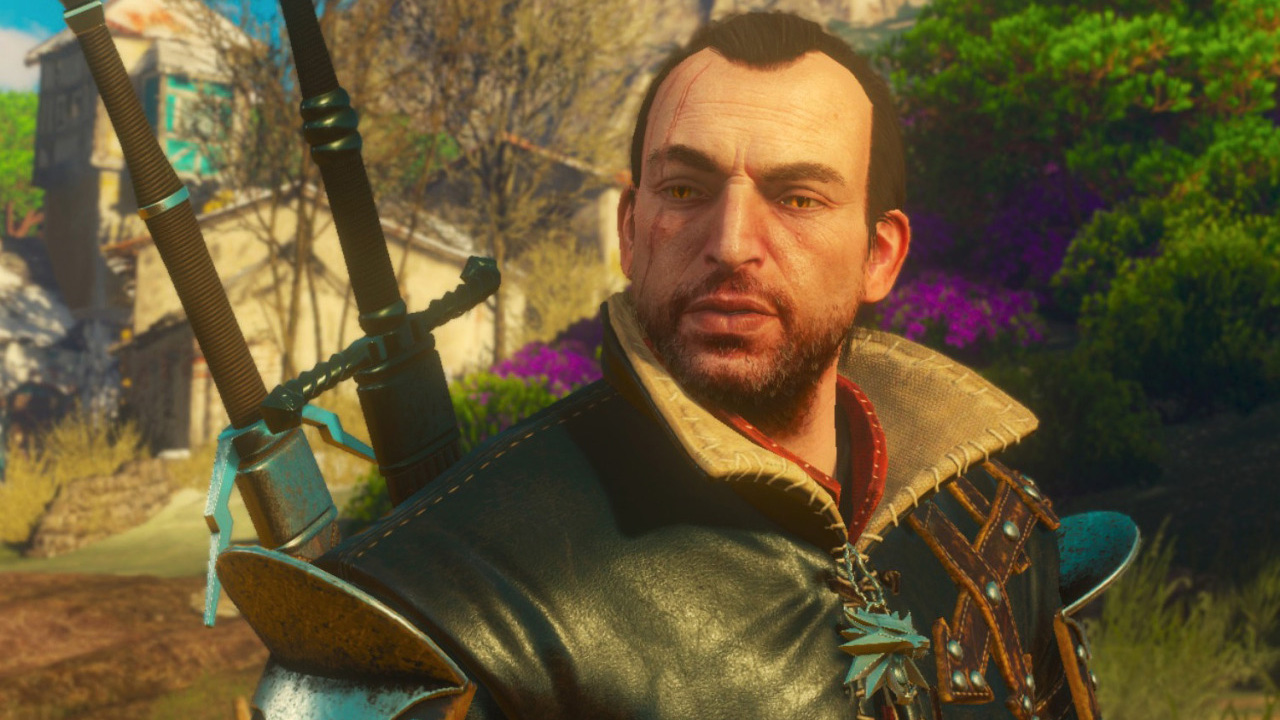
15. Lambert
Wes: God, what an asshole. Geralt gives us the image of the witcher as a stoic hero, but it's Lambert who shows us exactly how twisted the training and mutations behind becoming a witcher really are. He still has a chip on his shoulder, and it seems well-earned: Some of my favorite moments in The Witcher 3 are the brotherly ones between Geralt and Lambert, with Lambert drawing out stories about the parts of Geralt's past we know nothing about. Lambert has clearly never quite accepted what happened to him, and that makes him an interesting foil to the rest of the witchers.
And he looks great in Vesemir's hat.

14. Philippa Eilhart
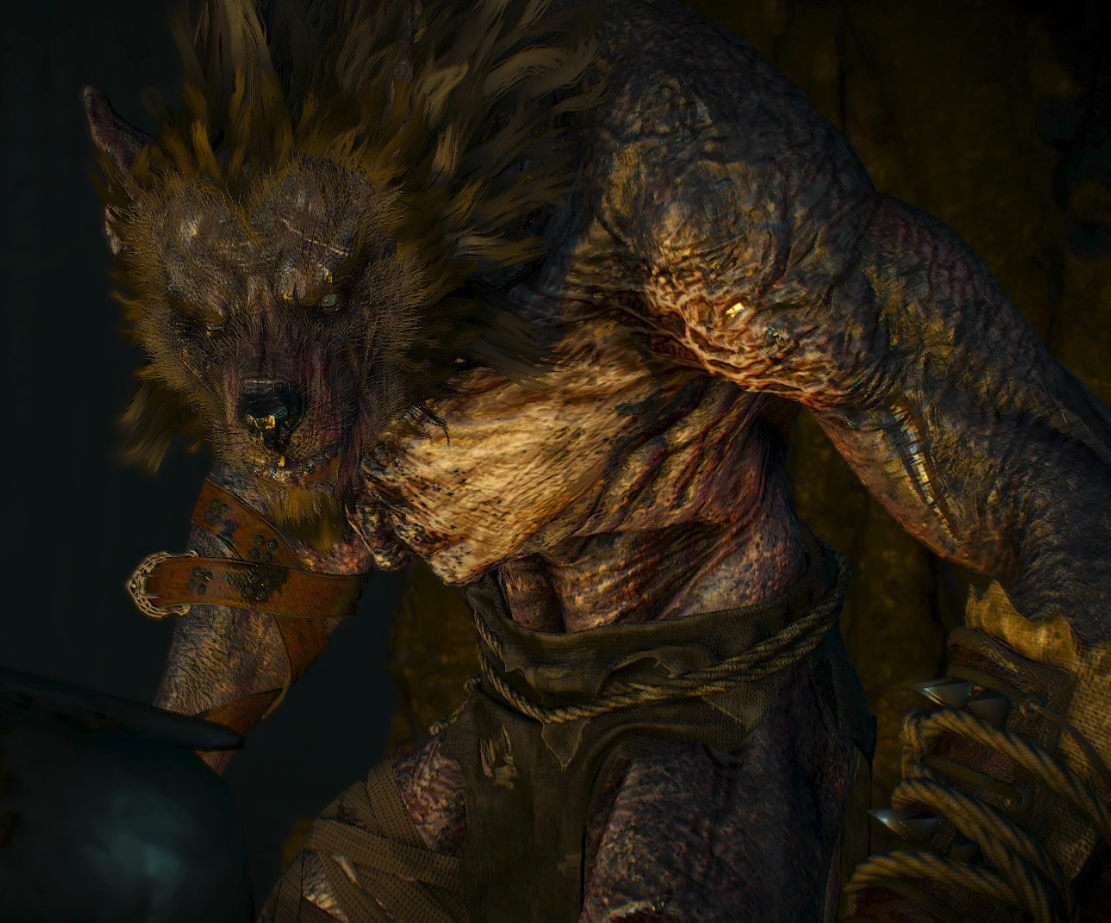
Morkvarg
One of The Witcher 3's most twisted monsters: a once-terrible pirate who has cursed to live an immortal life as a werewolf. When he tries to eat food, it turns to ash in his mouth. If he's killed, he reincarnates, still a werewolf. His ragged, rage-filled voice is memorable, as is the way you can finally kill him if you don't lift his curse: feed him a pound of his own flesh.
Tim: Phillipa Eilheart exists at the exact sweet spot on my hot/crazy axis of videogame crushes. It's testament to the skill with which CD Projekt introduces her in The Witcher 3, following a brief sojourn as an owl, that you immediately understand what a vital part of the universe she is, even if you haven’t played the previous games. Characters react violently to Phillipa's presence, and you’re served just enough backstory to make her quest for revenge against weasley King Radovid matter. And so it should, given how he had her blinded with a spoon. With that kind of motivation, it would've been easy to present her as little more than a power-mad witch hellbent on vengeance, but she’s way more interesting (and cooler) than that.
The biggest gaming news, reviews and hardware deals
Keep up to date with the most important stories and the best deals, as picked by the PC Gamer team.
When Geralt meets Phillipa, there's a vulnerability under all that crackling power—the once mighty sorceress, now on the run and all too aware of the risks. Helping her get payback against Radovid is one of the most satisfying subquests, partly because it’s such a juicy kill—and no accident that the camera lingers on her embonpoint and the dagger afterwards—but also because the Novigrad section has shown us the brutal effects of the Redanian clampdown on mages. Phillipa is essentially a terrorist/freedom fighter on their behalf, like a magical Che Guevera in a busty frock. Oh, and if you really dig Phil, you can even help grow her eyes back, thanks to the wonder of mods.
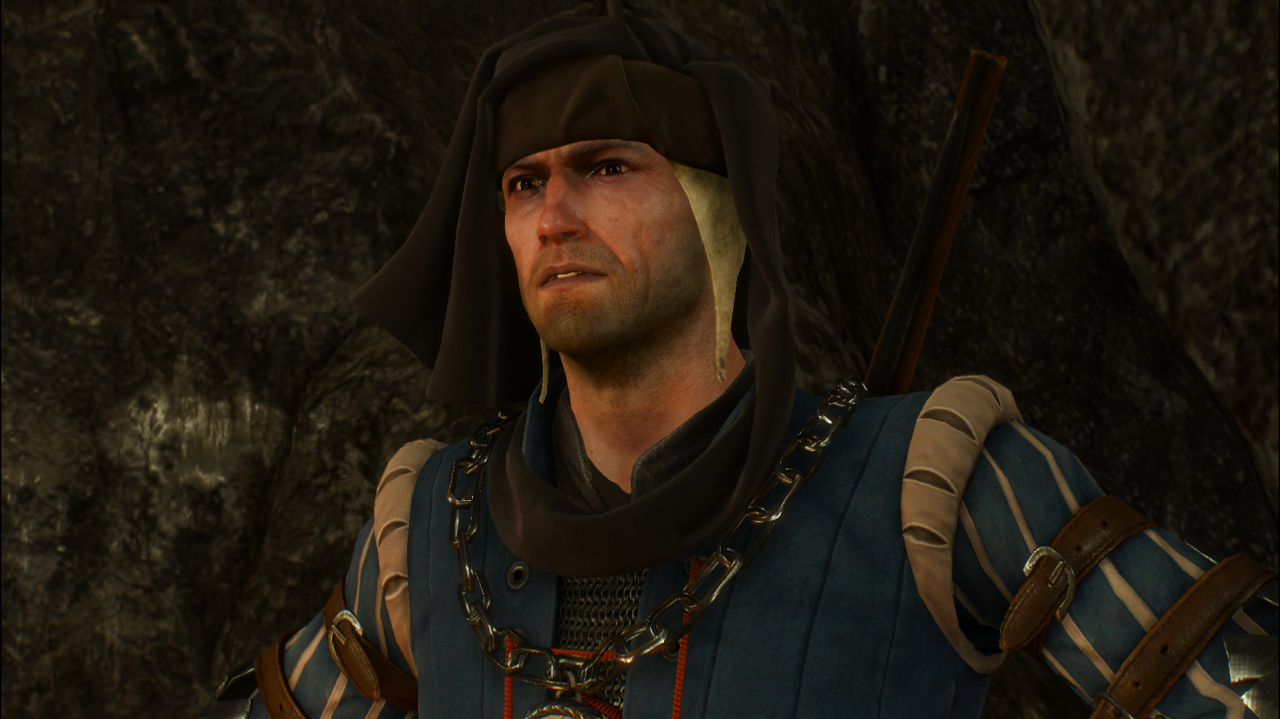
13. Vernon Roche
Wes: Most of my affection for Roche is a holdover from The Witcher 2, where he became a loyal brother to my Geralt. He's hard to like, at first: a dyed-in-the-wool asshole, and part of the establishment that treat non-humans like dirt. But he's also unflinchingly loyal to his unit and to his country. He saves Geralt's life. And his goals, like Geralt's, end up being deeply personal. As a result, the state of the Northern Kingdoms at the start of The Witcher 3, embroiled in civil war, felt like a direct result of the history Roche and I had shared.
With all that history in mind, Roche's smaller story in The Witcher 3 still carried more emotional weight than almost anything else in the game. For the second time, I found myself choosing between the greater good and a character I felt utterly loyal to. After finding his band of resistance fighters, and Roche having my back once again in the battle of Kaer Morhen, there was no way I could betray him. My heart always made me side with Roche.
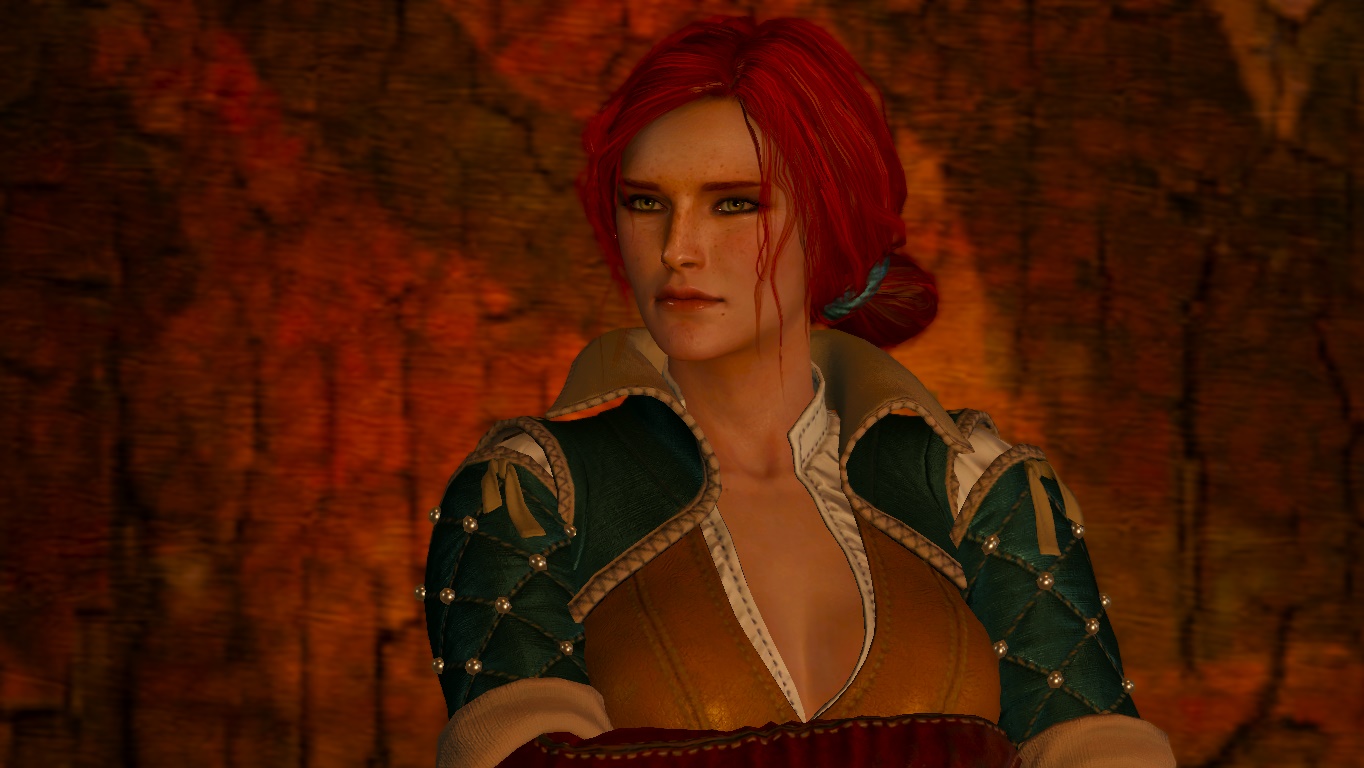
12. Triss Merigold
Wes: My romance with Triss was a heartbreaker. After two games together, we were separated in The Witcher 3, our relationship complicated by the return of Yennefer. I didn't know how to feel, and when Geralt had to tell Triss he loved her or let her go, I wavered. This led to the most human character arc in The Witcher 3, for me: Triss came back to help Ciri and Geralt battle the Wild Hunt because she loved them both, but our relationship was over. I still think about how bittersweet that moment was.
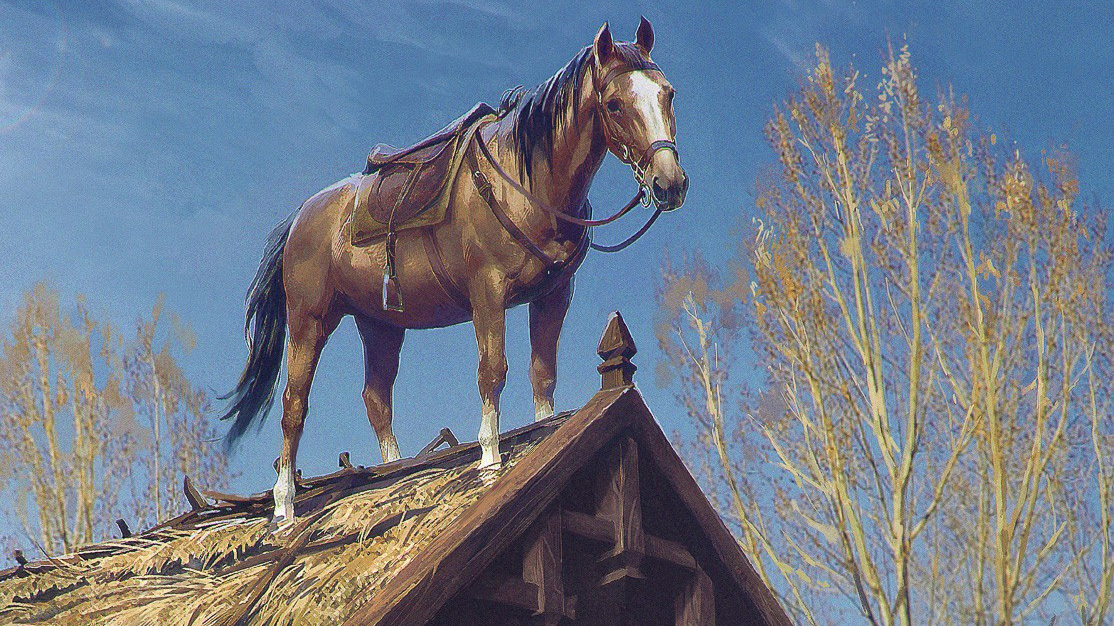
11. Roach
James: Roach is a horse.
There really isn’t much to say about Roach that isn’t already made obvious by the fact that she’s a horse. She’s a horse that does horse things, like get spooked by literally anything that moves or snort and steer off Geralt’s intended path. But Geralt needs her because whenever he’s in trouble or needs a ride or someone to hear his thoughts, Roach is there and Roach is listening. For every canyon she gets Geralt stuck in, she gets him out of five more.
10. This sleepy, rude vampire
Joe: Despite the multitude of customisation options modern games offer nowadays—where just about every aspect of your in-game avatar's appearance can be adjusted—finding a character that's truly relatable to how you see yourself isn't easy. While I'd love to tell you I see some of Geralt in myself, with his dashing looks, glorious hair and charismatic voice, I actually relate best to the rude vampire you catch napping in a coffin during The Witcher 3's A Tome Entombed sidequest.
"Just five more minutes," the vamp warns when you first interrupt his slumber. "Is it 1358 yet?" he then asks, to which Geralt informs him it is not. "Then fuck off," our downcast neck-drainer responds in an eerily accurate reflection of how I get myself out of bed every morning.
Should you attempt to disturb him again (which of course you do), the vampire then asks if you "fucking plan to come knocking once an hour now?" Before turning into a hideous hostile Katakan and attempting to rip your head off. Listen, never mess with someone's eight hours/umpteen millennia.
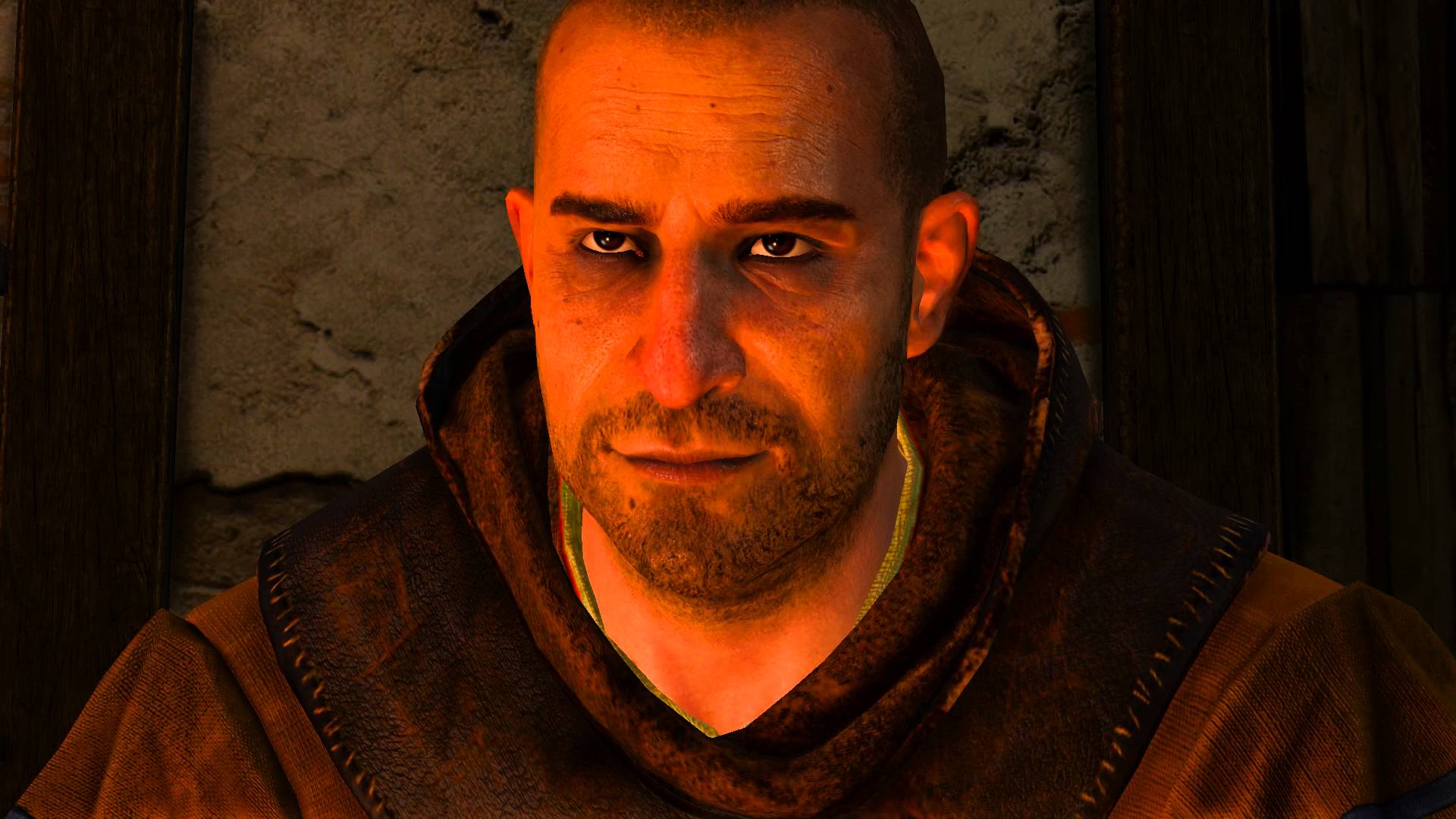
9. Gaunter O'Dimm
Shaun: Right at the beginning of The Witcher 3, when you’re feeling most receptive to the game’s onslaught of new characters, Gaunter O’Dimm seems fascinating. The slightly dodgy former mirror merchant has the air of someone who will factor heavily into the rest of Geralt’s journey except, alas! He disappears.
He doesn’t return until Hearts of Stone, in which he plays a crucial role. Geralt quickly learns that O’Dimm is just as dodgy as he seemed all those hundreds of hours ago in the White Orchard Tavern, but he’s dodgy in a mysterious, captivating way (not a “charges you 1000 orens for a broken mirror” kind of way). O’Dimm is among my favourite Witcher 3 characters because he very slowly blossoms from a vaguely creepy-seeming character into something a lot more fleshed out, a lot more genuinely disturbing. Also, providing you haven’t played Hearts of Stone, O’Dimm was the first demonstration that even seemingly peripheral characters are capable of being captivating in this game.
James: Dude’s an evil-ish trickster that speaks in riddles half the time. He’s bald and omnipotent and I want to slap him right across the face. During your final encounter with O’Dimm you can choose to fulfill your pact with him or attempt to banish him forever in a clever, time-sensitive scenario that tests your wits instead of your swordsmanship.
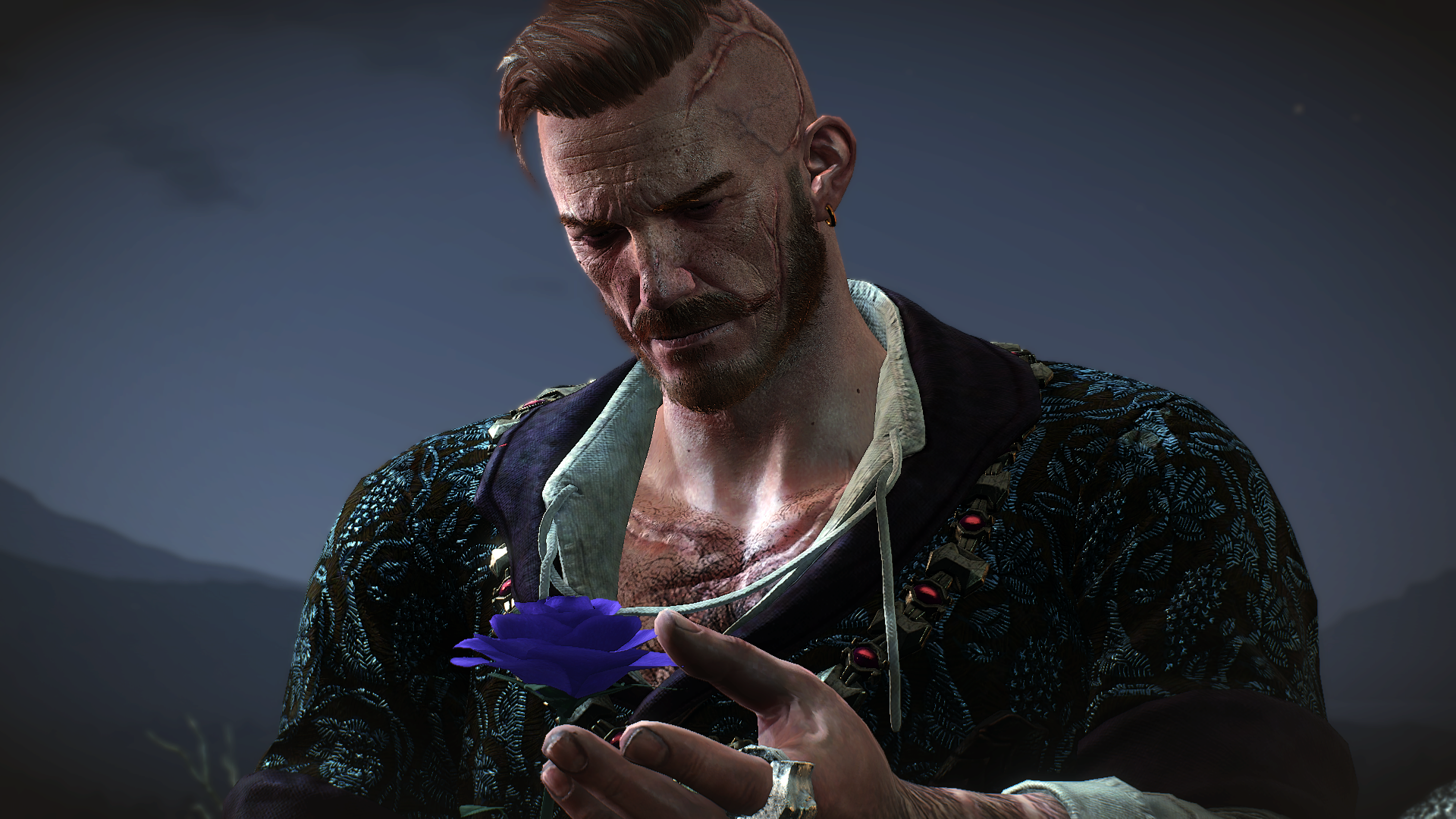
8. Olgierd von Everec
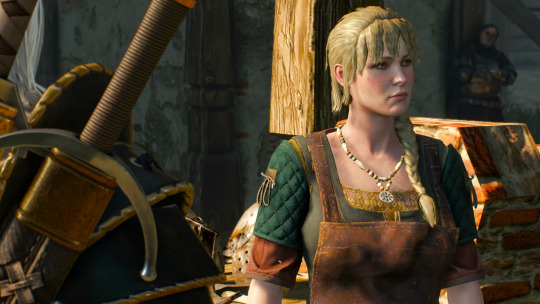
Yoana the master armorer
Yoana is a glass-ceiling smashing, inspirational role model for girls who love hammering maces everywhere. She escapes the yoke of her idiot boss Fergus Graem and goes on to become one of the best sources of gear in the game. All with the weary stoicism which plenty of career women will recognise only too well.
Tim: Brash, Northern accented, and brutishly violent—it’s fair to say I wasn’t predisposed to like Olgierd, but over the course of Hearts of Stone I came to care about his internal conflicts in a way few other RPGs manage. In fact, the beauty of The Witcher 3’s meaty DLC expansions is that the supporting cast gets so much screen time to breathe. As the story plays out we begin to see Olgierd as not just the braggartly leader of the Redanian Free Company, a group of battle-scarred mercs also known as “The Wild Ones”, but also as a tragic hero of sorts. The hints are there from the start in his mirthless laughter, but gradually we learn how his hubris and callousness has cost him both his beloved brother and wife, thanks to a deal at the crossroads with another character on this list.
So it is that when the time comes for Geralt to decide Olgierd’s fate, it’s really no decision at all—unless your own heart has been frozen. Choose the obviously correct path, defeat their tormentor, and the final mountainside conversation between Olgierd and Geralt is right up there with the fourth-wall breaking wink at the end of Blood & Wine in terms of emotional moments. Despite ostensibly “winning”, Olgierd is so ruined by regret that for once Geralt seems chipper in comparison. And yet both men are able to find some small measure of hope. After all, what else is there to do in The Witcher’s world. Plus Olgierd gives you a sweet sword. Goddamn it, this is how you’re supposed to do DLC.
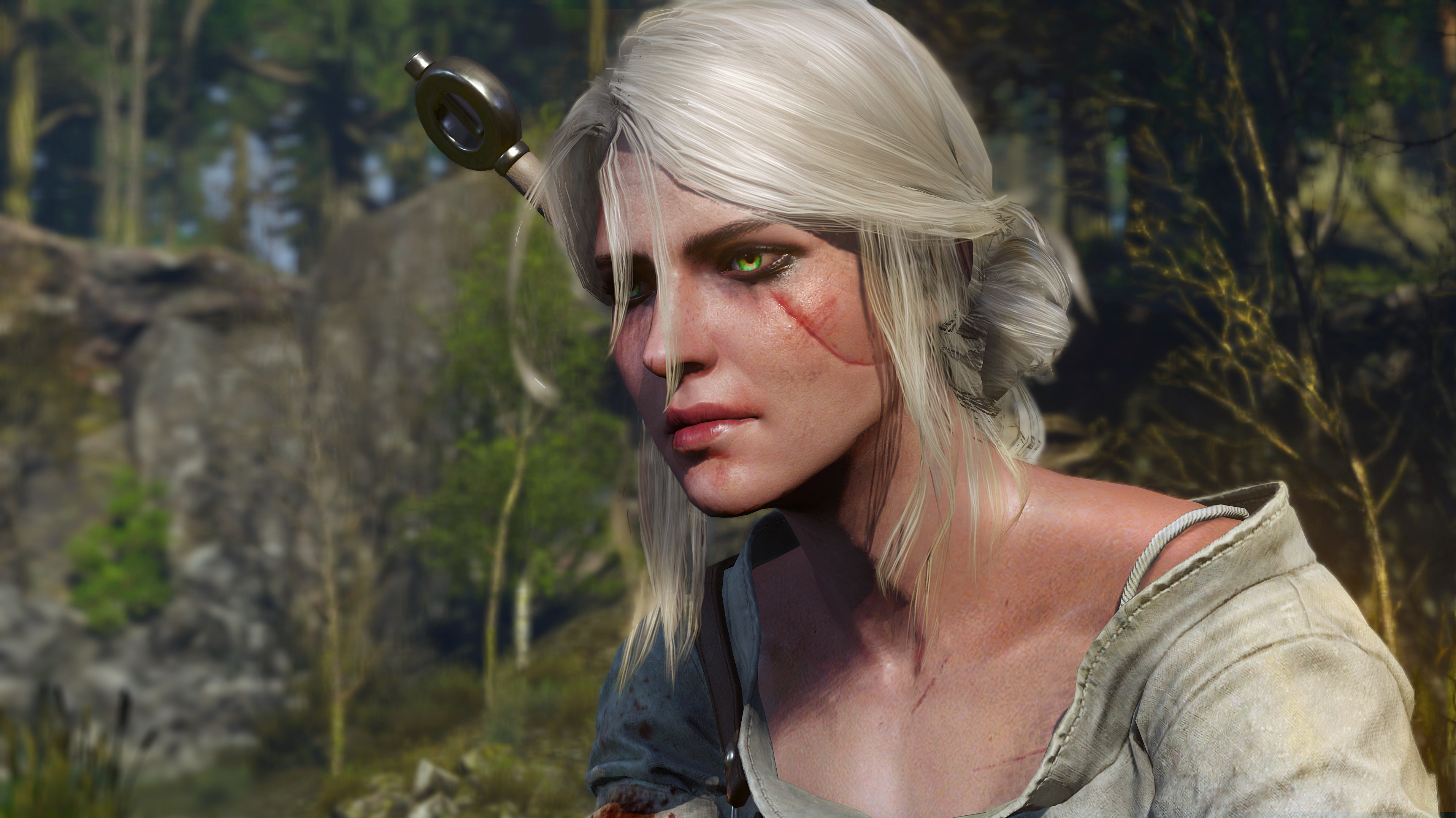
7. Cirilla Fiona Elen Riannon
Tim: Despite effectively sharing co-star billing with Geralt as the second playable character, it feels like barely anyone talks about Ciri. Perhaps there’s a sense that her “chosen one” magical macguffin status makes her a bit too tropey, or maybe it’s her reluctance to go ham with her powers for fear of the damage they’ll do. Regardless, I can honestly say that when I got to the big finish, and thought I’d fucked up my choices in such a way that Ciri would be sacrificed, I actually shouted “NO!” at the monitor and hard quit. After some spoiler-filled Googling, and having realised my choices were fine and a reunion was still on the cards, I felt a sense of relief unlike almost any in a videogame. The thought of Geralt never seeing her again was unbearable.
We experience much of Ciri’s arc through Geralt’s eyes, watching with paternal worry, frustration and pride as she goes from ingenue, through rebel, to saviour. But that’s the big picture. What matters more is the dysfunctional family she forms with Geralt and Yenn, the three finding unlikely comfort in each other. Ultimately, these are not characters destined to settle down. Nice though it is, Geralt setting up home with any of his squeezes in Blood and Wine feels like fan service. The ‘good’ ending to the main game, in which Geralt is reunited with Ciri at an inn, and hands her a Witcher’s sword, feels like the truth. There’s joy at seeing them reunited and knowing she’s made her peace with following the old man’s path, but it’s also tinged with melancholy because it means she’s outgrown the family. As all kids must.
Jody: I got the same ending. It feels right to have Ciri replace Geralt. They’ve got so much in common. They both feel like mash-ups of tropes and existing heroes, but where he’s Wolverine crossed with Elric riding into town like The Man With No Name, she’s Nightcrawler but also a Time Lord who happens to be a princess and the hero of prophecy. She deserves to take over from him. She’s the real hero of The Witcher 3, at least in the main questline. When Ciri leaves to save the world she says as much, telling Geralt, “This is my story, not yours.”
But she’s also very human. A recurring theme in what makes a lot of these characters great is that they have some kind of mythic resonance but are also relatable thanks to moments when they’re suddenly down-to-earth. Geralt’s a stock antihero but also a man who likes to get sloshed and pull stupid pranks. Ciri’s a Strong Female Character but also someone who settles arguments with Rock Paper Scissors and enjoys trashing a laboratory full of expensive equipment as much as a snowball fight.
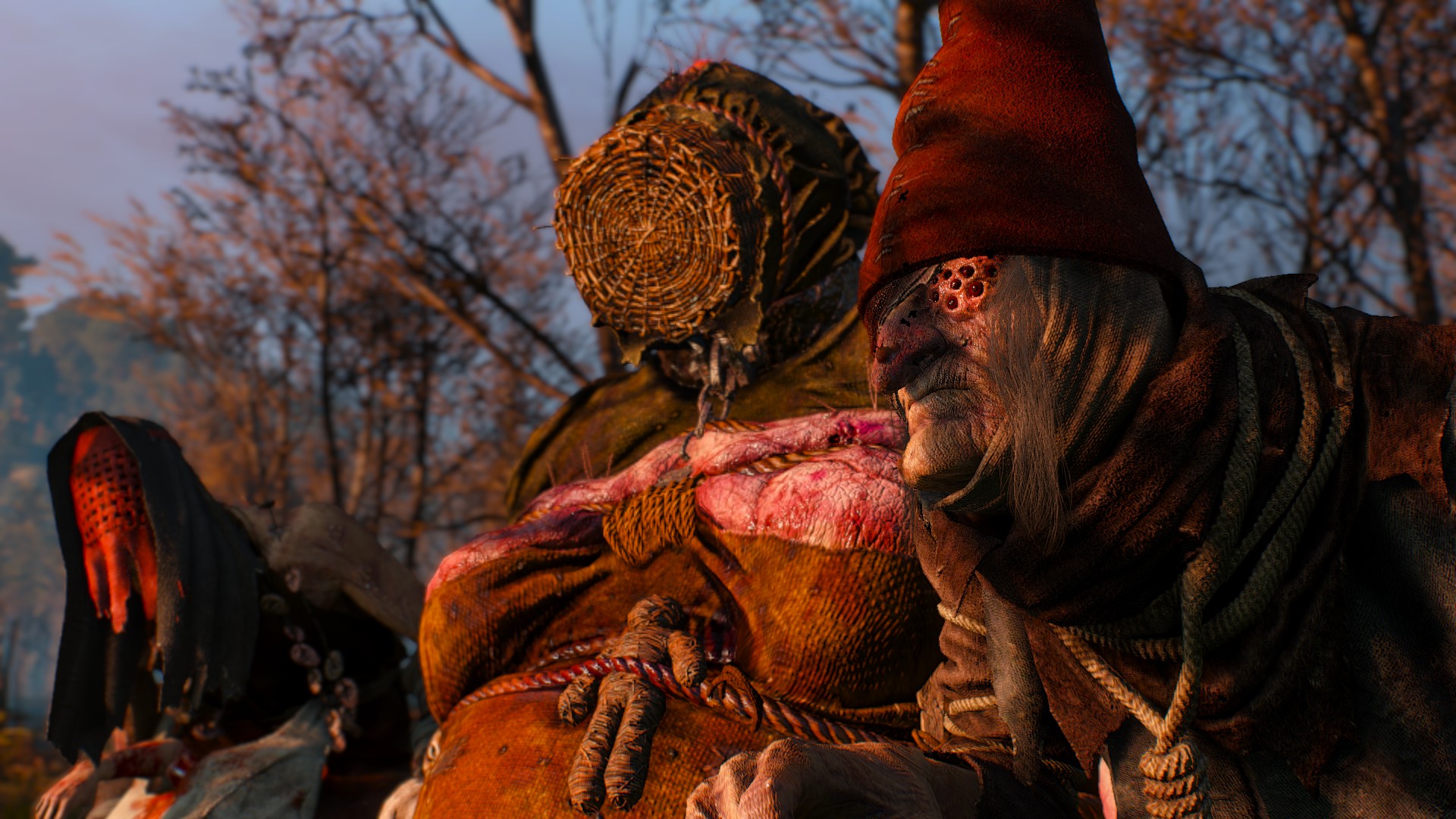
6. The Ladies of the Wood
Jody: It feels like cheating to count these three as one, but the Ladies of the Wood are inseparable. The Crones of Crookback Bog, AKA the Good Ladies, or to give them their individual names the Weavess, the Brewess, and the Whispess, are The Witcher 3 at its most mythic. Somewhere between Baba Yaga and the Greek Fates, they’re almost god-like but also upsettingly earthy. Lascivious and lip-smacking, they call children “sweet as caramel” and the Brewess slaps her butt at Geralt like she’s on the dancefloor. They’re still eerie though, with design touches like the Weavess seeming to have an eyepatch but up close you realize it’s more like an eye made of honeycomb—and only then do you see things fly out of it. The Brewess and the Whispess have creepy voices muffled by their basket and veil, and the soundtrack’s violin and guitar swirling around each other when they’re around contribute to that eeriness too. All these things combine to make them more memorable villains than Imlerith, or basically anything else in The Witcher 3.
Wes: The Crones are like some kind of cosmic revenge for the sanitized, kid-friendly depictions of modern fairytale villains. They're the witch from Hansel & Gretel, except there are three of them, and they're fucking terrifying. And nasty—easily the most memorable character designs of The Witcher 3's incredible monster designs. And defying the usual fairytale ending, one of them escaped death in my game. I'm sure she's still out there, somewhere, making disgusting stew of mens' bones.
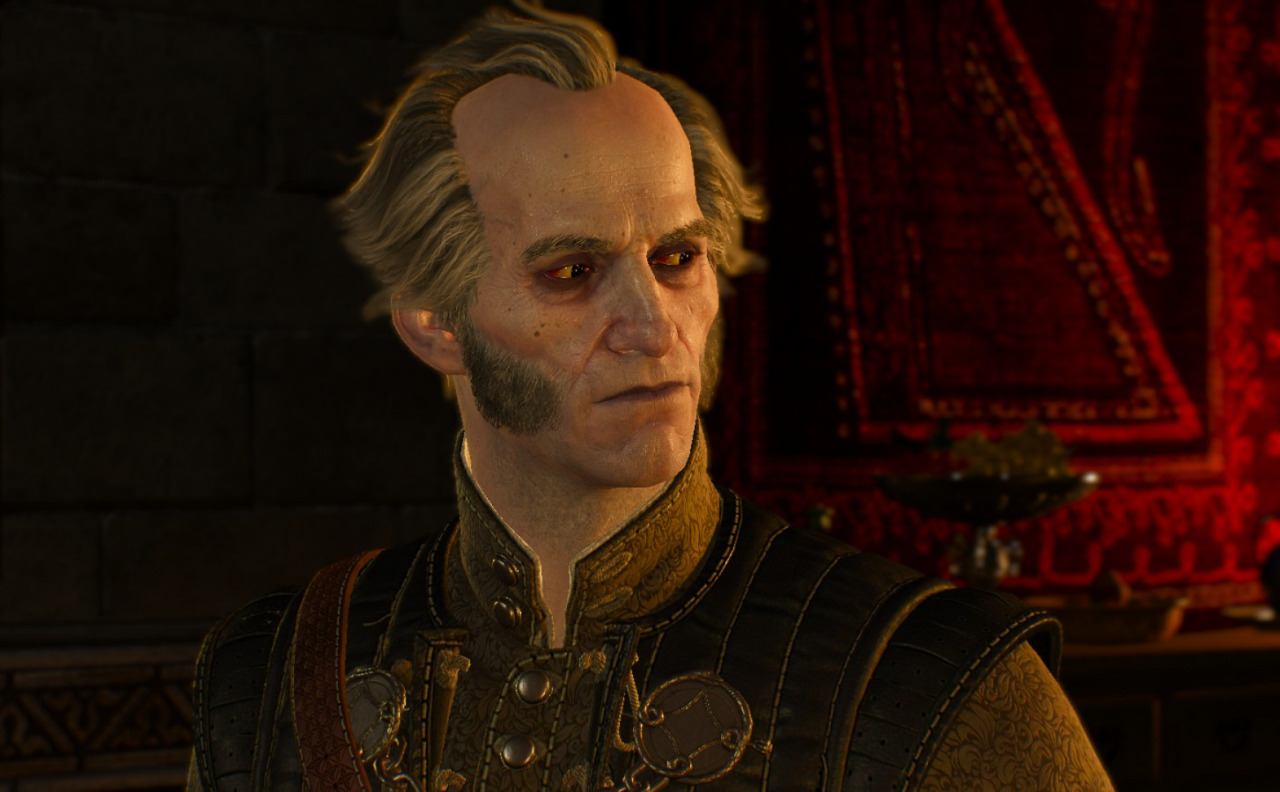
5: Emiel Regis Rohellec Terzieff-Godefroy
Tom S: You see all sorts of vampires in fiction—angry vamps, sexy vamps, shrivelled vamps. Rarely do you see a very reasonable vamp, but that’s Regis. He’s dignified, articulate and a genuine friend to Geralt during his time in Toussaint in Blood and Wine. It helps that he and Geralt go way back, but they strike a special rapport during a drinking session in a graveyard, and during this conversation Regis becomes one of the few characters to show genuine interest in Geralt’s whole deal. After some preamble he suddenly asks Geralt if he regrets becoming a witcher. I deliberated over my response for a few long minutes, surprised that the game had suddenly given me so much power to shape Geralt’s character.
Regis is one of the few characters in the game able to catch Geralt with his defences down. That’s largely thanks to his charm, enhanced by a great performance from Mark Noble, but it’s also because he and Geralt feel like equals. They’ve lived more, seen more, than anyone else in the kingdom. I really felt that unspoken brotherhood.
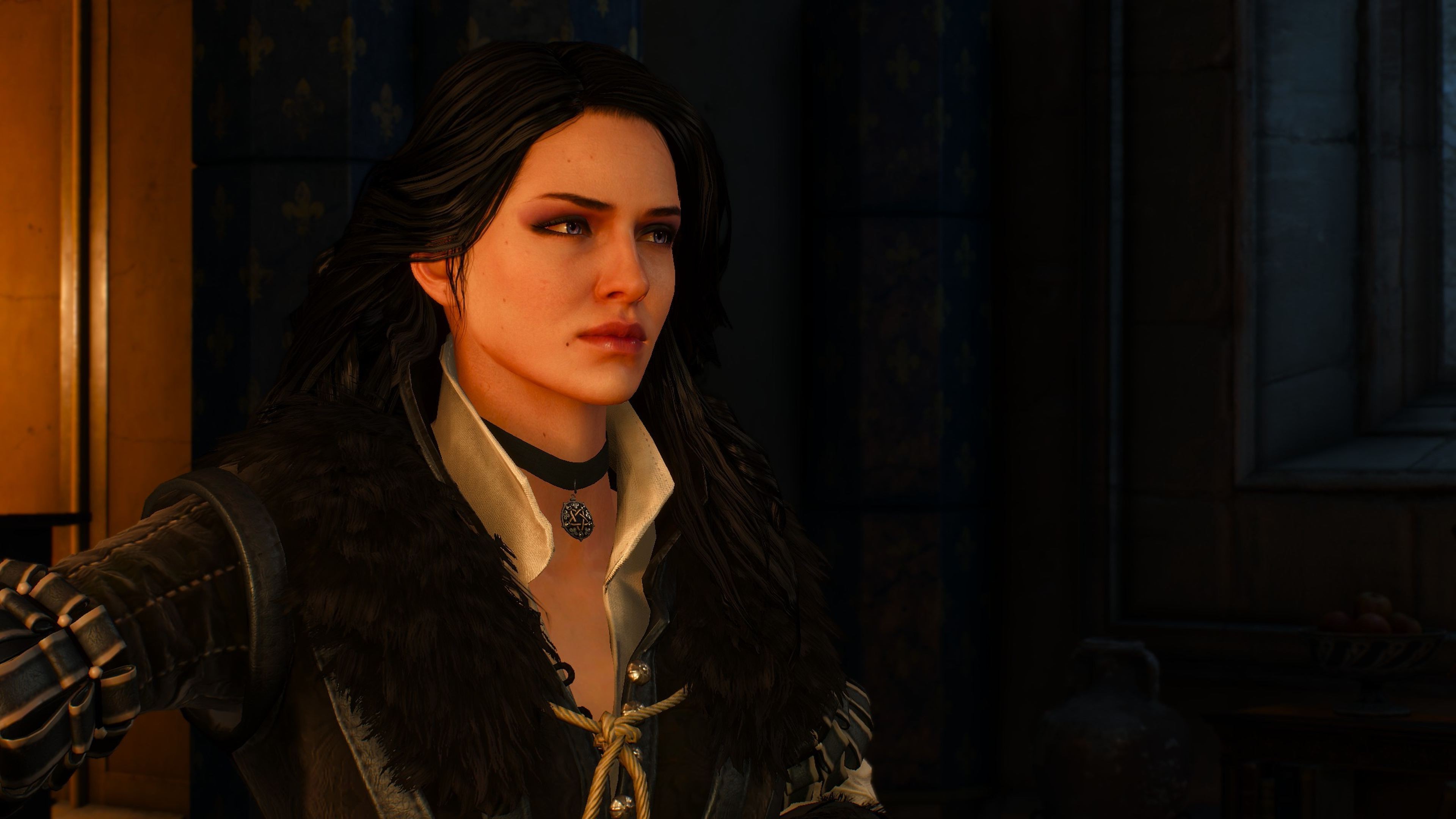
4. Yennefer of Vengenberg
Wes: After playing the first two Witcher games, my heart was loyal to Triss. Yenn was the love interest of the old Geralt, before he was reborn with a gaping hole in his memory. Triss was the one who'd been by his side ever since. But there's a reason Yennefer is higher on this list than Triss: She's simply the more interesting character. She and Geralt have a fascinating, torturous relationship and history. They love each other, but are often not good for each other—and are they true feelings, or the result of a spell?
Yennefer's complex relationship with Geralt is great, but she has a personality and motivations that aren't defined by him, too. She's abrasive more often than not, but spend enough time with Yenn and you'll see the vulnerable humanity under the surface.
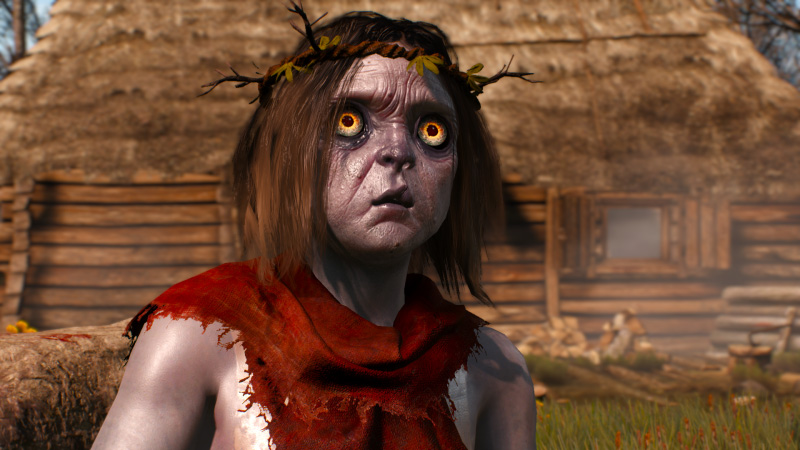
3. Johnny
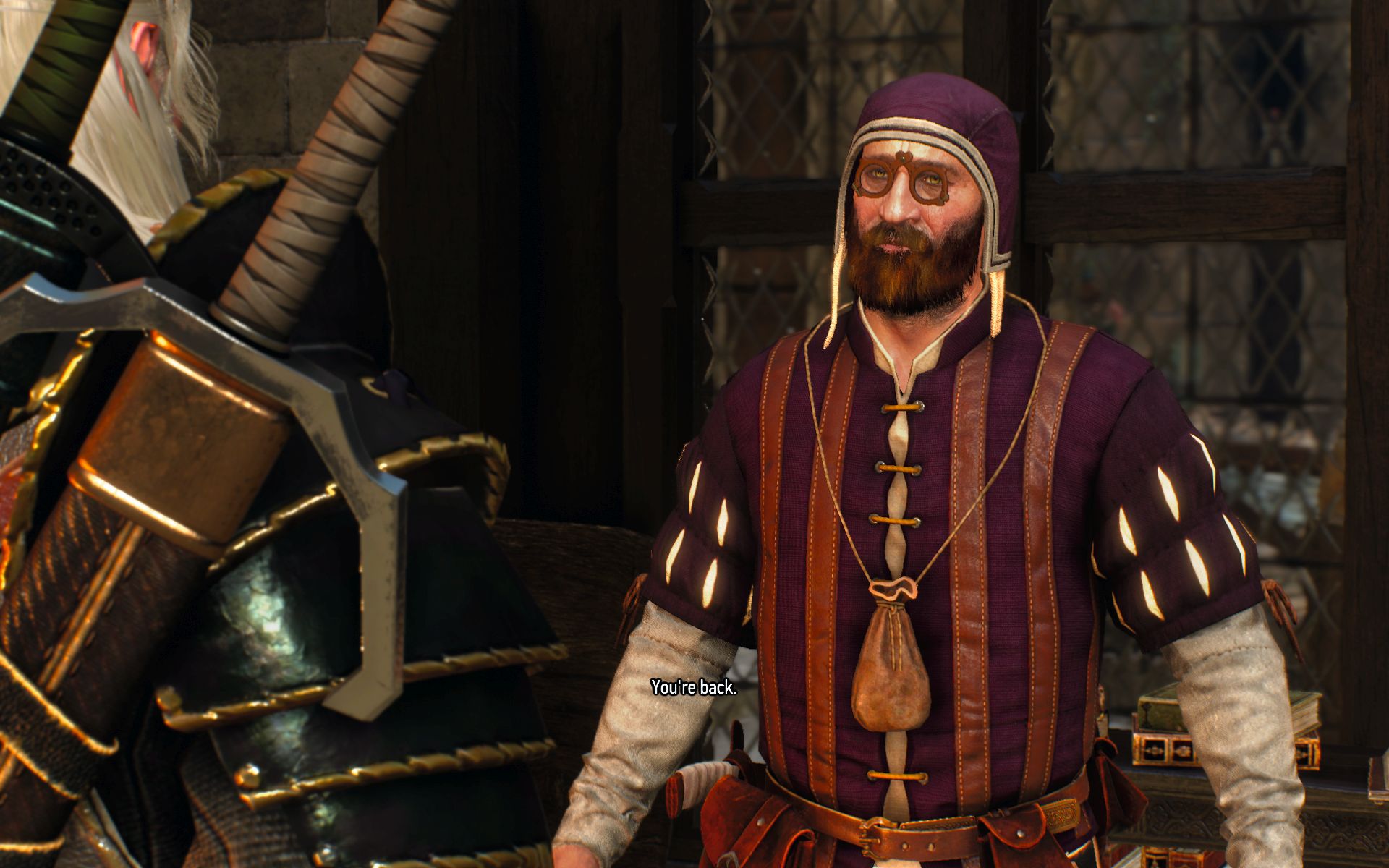
Markus TK Hodgson
An unassuming merchant who happened to play one hell of a hand of Gwent. As Phil attests, sometimes a great Gwent match can be more memorable than a dramatic quest.
Shaun: I’m not going to lie: Johnny is among my favourite characters from The WItcher 3 because he looks funny. With his big yellow eyes–faintly belligerent and even more faintly melancholy–Johnny the friendly Godling feels like a dark riff on Casper the Ghost. He first turns up at Crookback Bog near the beginning of The Witcher 3 and first impressions are strong, chiefly because he can’t talk, but also because finding a weird looking child in the creepy boggy woods is genuinely chilling. Once Geralt has helped him get his voice back, Johnny somewhat lowers in my esteem, but he continues to look funny. He’s just, y’know, really fun to look at.
Jody: I’m not as into Johnny’s swamp-Muppet face. I like his voice, like a guttersnipe urchin transplanted to the countryside. Also his willingness to tell you about his favorite part of the day, which is when he takes a morning dump while watching the sunrise. There’s an appreciation for small comforts running through the grimness of The Witcher 3, whether it’s Geralt in his tub or Ciri at the hot springs or Johnny shitting as the sun comes up, and I love it.
Joe: I agree with Shaun in that there is a certain charm about Johnny's odd features, but like Jody it's his voice that I enjoy most. Well, it's actually his first word: whisky. As a Scotsman, I like to think that my first word, having lost my voice for some time, would be something quite so patriotic. He might spell it wrong by opting for the Irish "whiskey" variation of the word (seeing as whisky was founded in Scotland I'd suggest our spelling is correct, despite what Irish folk may claim), however I can hardly hold that against the lad's indelible excitement as he bursts into song quoting our national tipple.
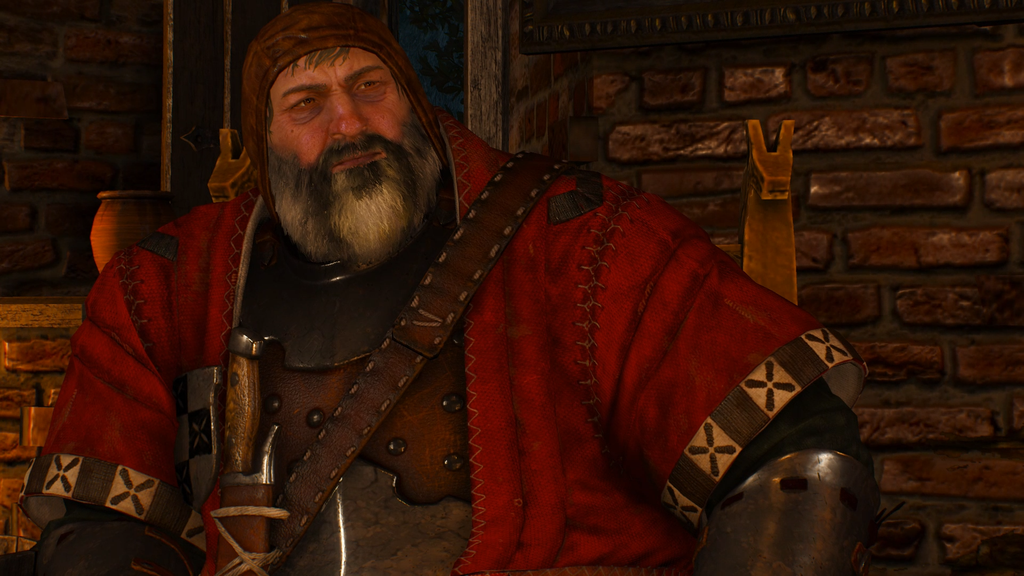
2. Philip Strenger, the Bloody Baron
Wes: A character so good, we had to write an entire feature about the quest that entangles his story with your own. There's so much to say about the complex and conflicted Baron, but for me it's the end of his lengthy questline that made him unforgettable. As Geralt, I did my best to help him, to save his wife from the Crones of Crookback Bog. But despite my good intentions, she died, he was devastated, and when I returned to Crow's Perch I found him hanging limp from a tree. There was no drama to his death. The most magnetic character in the game was just gone. I felt numb.
Tom S: In my game the Bloody Baron lived. I can’t forgive him for what he did, but I helped him anyway in the hope that I might somehow make things better for his family. He’s a great character because the side you see is affable and funny. You could be friends with this guy, but you know what he’s done, and you see the guilt gnawing at him.
I’m so used to typically villainous villains in games that a character like the Baron is a refreshing change. But beyond the complexity of his story and the numerous outcomes, I think The Baron captures The Witcher 3’s view of humanity in one jolly rotund frame. He's fallible, corrupt and capable of terrible things, but somehow he earns your sympathy. I don’t know how the writers managed it; some dark sorcery, surely.
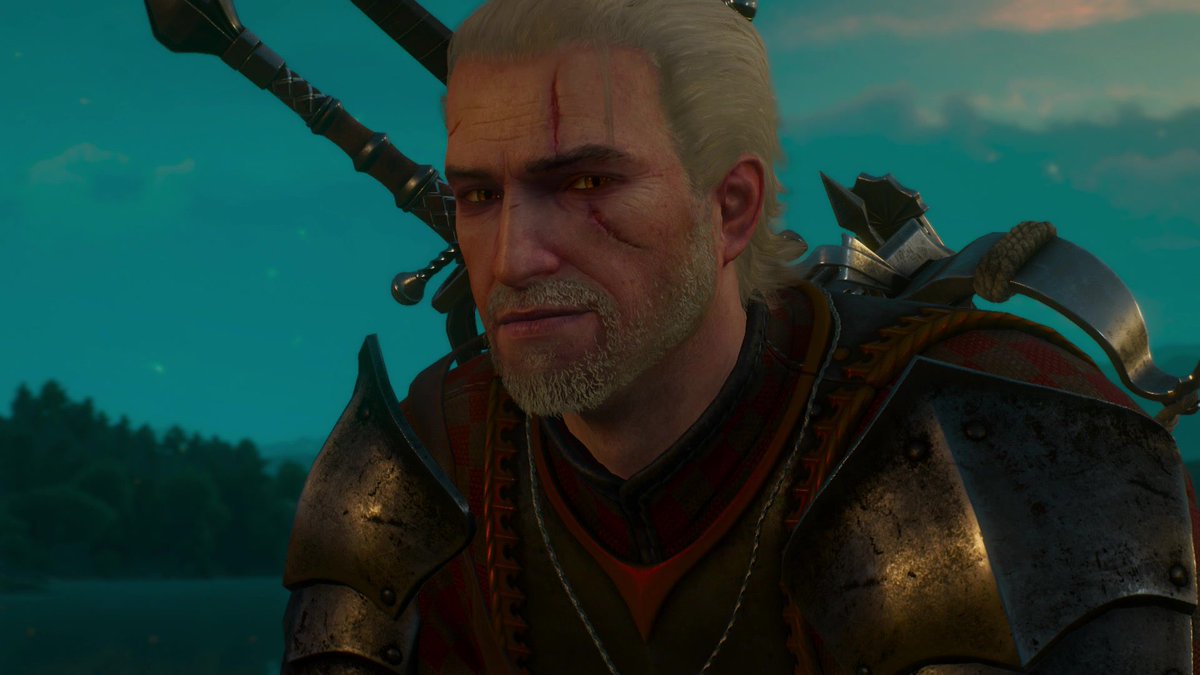
1. Geralt of Rivia
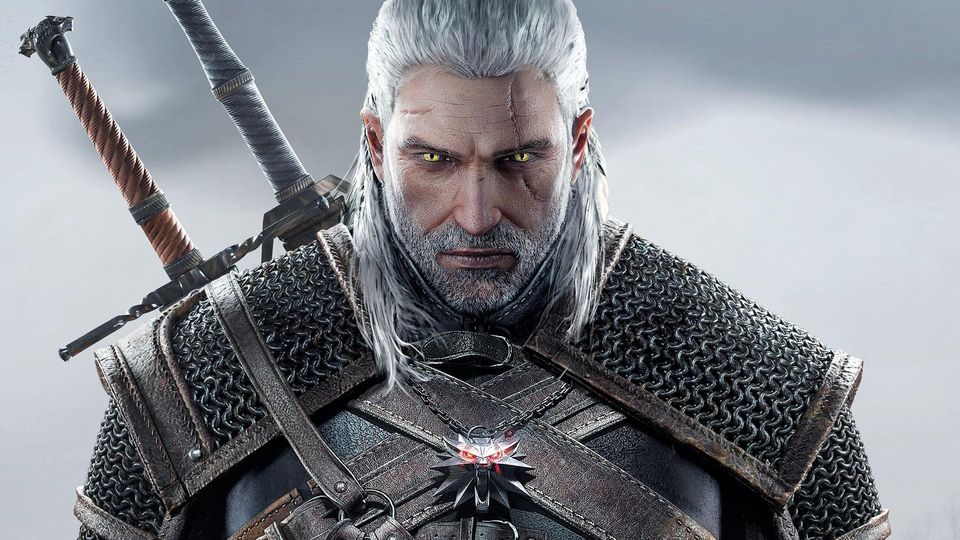
The Witcher 4: What we know
The Witcher on Netflix: Cast & recaps
Witcher 3 mods: Good hunting
Wes: I am not Geralt of Rivia, and that ultimately proves to be the best thing about him. There's so much more to this gruff Witcher than you might think at the outset, which makes him not only the best character in his own game, but a more relatable human than the inhabitable avatars of so many other RPGs. He struggles with being both an outcast and a savior, both shunned and relied upon. He has every reason to be selfish, but The Witcher 3 offers interesting opportunities, again and again and again, to make more noble or more human choices, and to see how those outcomes affect Geralt. In his world, those outcomes aren't always pretty, and one of the great achievements of The Witcher 3's design—and the writing and acting and animation of Geralt's character—is that it feels like both you and Geralt have to live with the consequences of your choices.
Even though he's an established character, there's enormous range in the Witcher series in how you get to define Geralt. In all three games Geralt has to choose sides between humans and non-humans and question his Witcher code of non-involvement. But the way Ciri, Yenn, and Vesemir interact with Geralt in the Witcher 3 give him a family and motivations beyond himself, imbuing his character with purpose and a fragile fatherhood that makes everything that much more personal.
But my favorite thing about Geralt (at the risk of blabbering on forever) is how convincingly he exists as a person in this world. No other game has worldbuilding writing this good: you have random encounters with old friends and acquaintances, and Geralt makes references to past experiences like you or I would, catching up with an old friend. He never info dumps like so many other game characters. He's not talking to you, the player. He's just talking to an old pal. It's because of Geralt that the Northern Kingdoms feel more real and alive than any other place in gaming.
Shaun: What I most like about Geralt is that, even though he’s a gruff-looking, fairly generic-looking video game hero, he’s funny. His humour is bone dry, often barely detectable, but it’s there nonetheless. Geralt’s charm is a real slow burn. I think a lot of writers are eager to let players know exactly who their characters are right from the outset, in order to captivate audiences immediately. But in The Witcher 3 (and in previous installments), Geralt is marvelously understated: quite a feat given how bland he looks on the boxart.
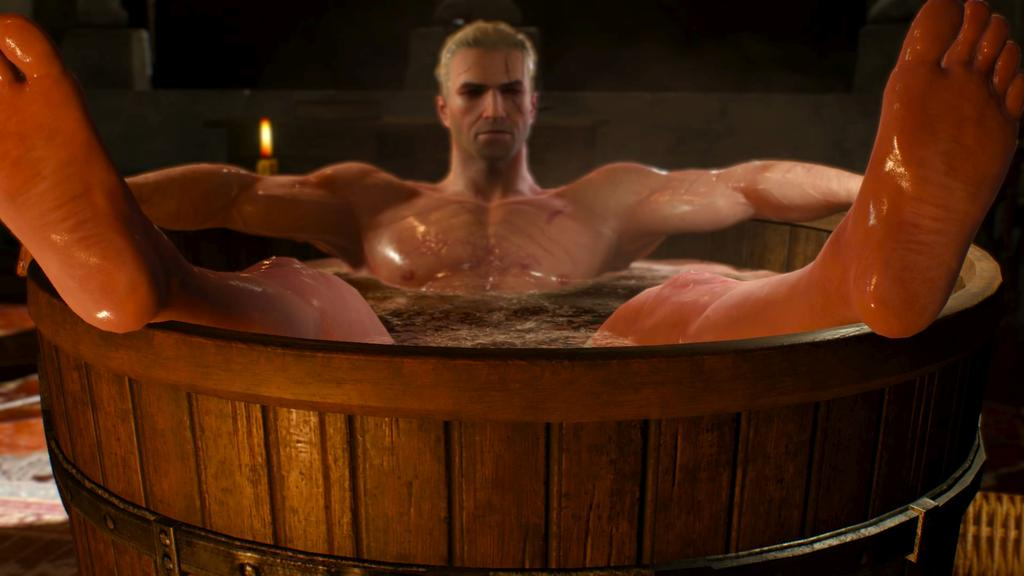
*0. The true star of The Witcher 3: Tub Geralt
You will live forever in our hearts, Tub Geralt.

Wes has been covering games and hardware for more than 10 years, first at tech sites like The Wirecutter and Tested before joining the PC Gamer team in 2014. Wes plays a little bit of everything, but he'll always jump at the chance to cover emulation and Japanese games.
When he's not obsessively optimizing and re-optimizing a tangle of conveyor belts in Satisfactory (it's really becoming a problem), he's probably playing a 20-year-old Final Fantasy or some opaque ASCII roguelike. With a focus on writing and editing features, he seeks out personal stories and in-depth histories from the corners of PC gaming and its niche communities. 50% pizza by volume (deep dish, to be specific).

